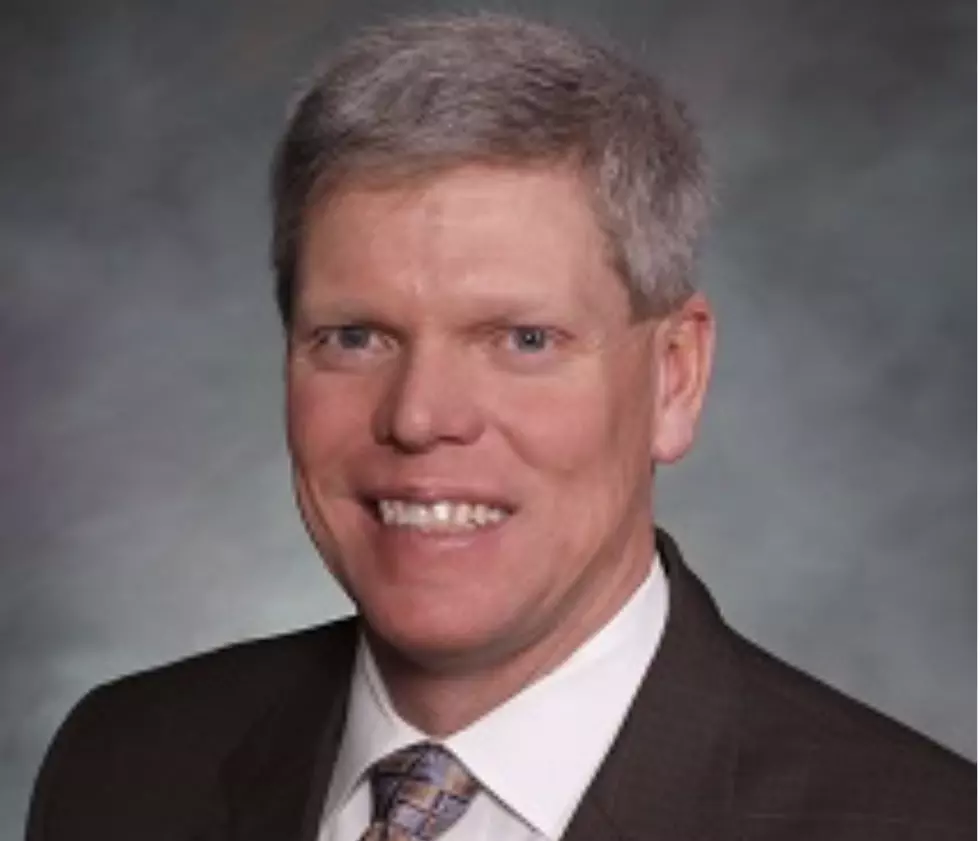
Former Casper Doctor Denied New Trial on Sex Assault Charge
A judge on Friday declined to grant a new trial on a single count of sexual assault of which a former Casper doctor was convicted in January.
Attorneys for Paul Michael Harnetty had moved for a new trial after an ultrasound technician who worked at Community Health Center of Central Wyoming alongside Harnetty, came forward after reading about the trial in the news.
A jury convicted Harnetty of two counts of second-degree sexual assault and acquitted him on six other charges. Harnetty, who had worked as an obstetrician/gynecologist, was charged after six of his former patients alleged that he had touched them inappropriately during medical exams.
Donna Rosenlieb, a registered diagnostic medical sonographer who left in August 2015 but has since returned to Community Health Center of Central Wyoming, took the witness stand during Friday's hearing and testified regarding statements made by one victim during Harnetty's trial.
Rosenlieb, in a sworn affidavit, claimed she was present during one of the incidents for which Harnetty was convicted of sexual assault. She contends that "there was nothing inappropriate or out of the ordinary that occurred."
At trial, the victim in that incident testified that she told the "ultrasound tech" -- who would have been Rosenlieb, the defense says -- that the exam hurt "really bad." According to the victim's testimony, Rosenlieb replied, "He can be kind of rough but you just get used to it."
In her affidavit, Rosenlieb says she does not recall that conversation and certainly would not have said such a thing. She also said she would not have allowed a patient to be mistreated by an examining physician.
The Wyoming Supreme Court has held that in order for a new trial to be granted based on newly-discovered evidence, the defense must satisfy four requirements: that the evidence has come to light since trial, that the fact that the evidence was not discovered sooner was not due to a lack of due diligence by the defense, that the evidence would probably produce a different verdict if the new trial were granted, and that the evidence is not cumulative -- which is to say that the new evidence does not speak to facts in relation to which evidence was presented at trial.
During defense attorney Don Fuller's argument on Friday, District Judge Thomas Sullins, who presided over the case as well as Friday's hearing, told Fuller that his impression was that Harnetty should have known about Rosenlieb's existence and the facts or circumstances to which she could have testified at trial.
"This is something that Doctor Harnetty would not have remembered, judge," Fuller replied.
Fuller also pointed to the preliminary hearing in the case, which the defense has previously identified as a source of confusion and discord.
During that preliminary hearing, Fuller said, prosecutors said they did not have probable cause that any crimes occurred after October 2013. But at trial, the victim in question testified that Harnetty had assaulted her in December 2013 or January 2014.
In supporting a defense motion to acquit Harnetty in February, defense attorney John Miner argued that -- based on the incongruity between the detective's testimony at the preliminary hearing and the victim's testimony at trial -- Harnetty had been convicted of a crime with which he had not been charged, and which had not been bound over following the preliminary hearing.
However, the amended count in question alleged a second-degree sexual assault having occurred on or between Aug. 1, 2013 through Jan. 31, 2014. Even if the specific incident referenced by the detective differed from the incident referenced by the victim, both incidents would have fallen within the date range.
Fuller argued that because the incident referenced by the victim was not brought up until trial, defense attorneys had no opportunity to find or interview Rosenlieb. Fuller expressed doubt that Sullins would have granted a continuance for that purpose during the trial.
In his motion, Fuller references "at least one juror" who, in a post-trial interview, indicated that "the jury was curious as to why [Rosenlieb] was not presented to them by the defense as had been the exam room nurse and medical assistant."
Assistant District Attorney Kevin Taheri, in responding to Fuller's motion, conceded that Rosenlieb's testimony is new since the trial and was not left undiscovered because of a lack of due diligence on the part of the defense.
However, Taheri did argue that the defense has "completely failed" to show that the new evidence would likely lead to a different verdict at a new trial. He also qualified the evidence as "impeachment" evidence, or evidence impeaching testimony given by a witness at the original trial.
According to Taheri's motion, the Wyoming Supreme Court has specified that impeachment evidence is not sufficient grounds for a new trial.
Taheri also noted that conversations with jurors are not admissible in such a hearing, and he said it would've been inappropriate of Sullins, in deciding the matter, to consider such information.
More From 107.9 Jack FM









